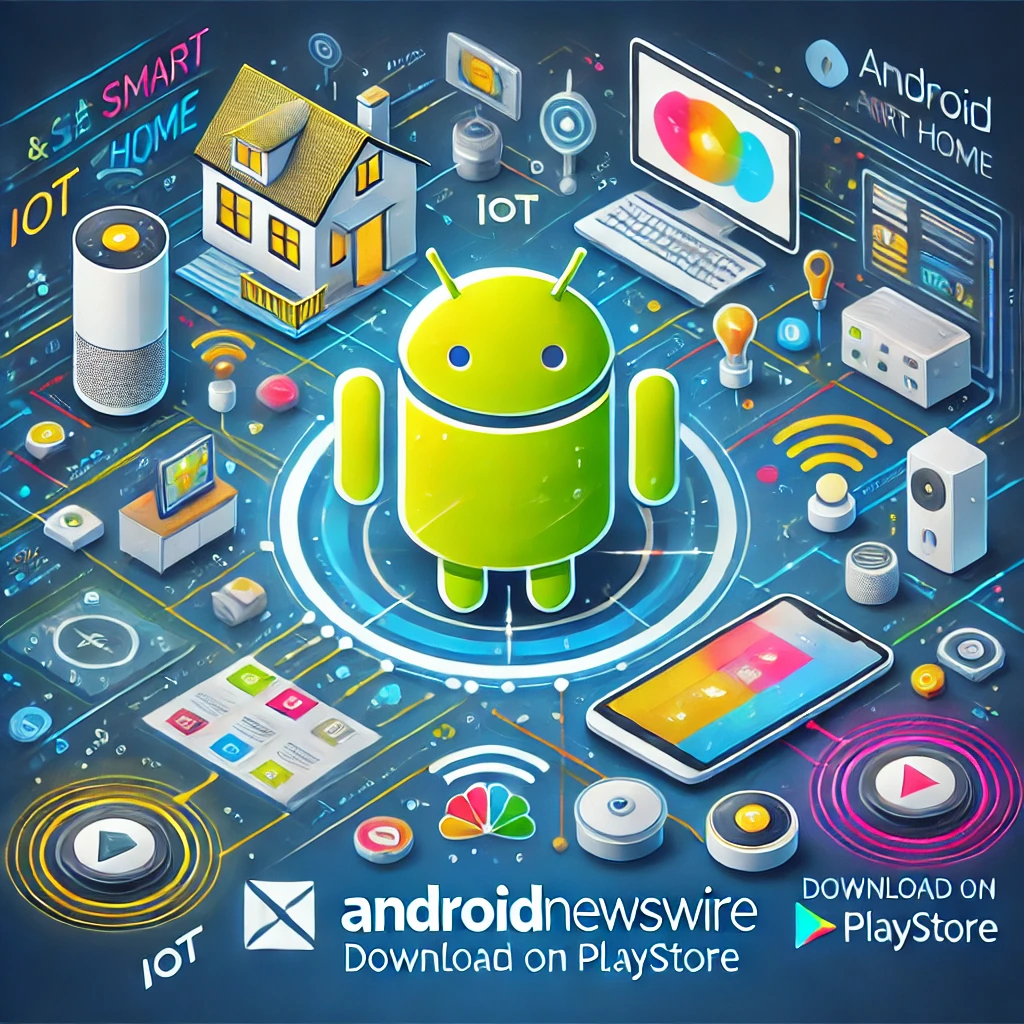The Internet of Things (IoT) has rapidly transformed the way we interact with technology, making our homes smarter and more efficient. At the heart of this revolution lies Android, the world’s most popular operating system, which is increasingly playing a pivotal role in shaping the IoT ecosystem. From smart appliances to voice-controlled assistants, Android has emerged as a key enabler of connectivity and innovation in smart homes. Here’s how Android is revolutionizing IoT and reshaping the future of smart living.
1. Android as a Platform for Connectivity
Android’s open-source nature has made it the backbone of numerous IoT devices. Unlike proprietary operating systems, Android provides developers with the flexibility to create customized solutions for a wide range of devices. This adaptability has led to the proliferation of Android-powered smart devices, including:
- Smart Speakers: Devices like Google Nest Hub leverage Android to offer seamless voice control and integration with other smart home gadgets.
- Smart TVs: Android TV has become a popular choice for manufacturers, offering a unified interface for streaming, gaming, and home automation.
- Wearables: From smartwatches to fitness trackers, Android powers devices that connect seamlessly with other IoT components in a smart home ecosystem.
2. Android’s Role in Home Automation
With the rise of home automation systems, Android has become a central hub for controlling and managing smart devices. Apps designed for Android devices enable users to:
- Control Lighting and Appliances: Adjust lighting, operate smart plugs, or control thermostats directly from their Android phones or tablets.
- Monitor Home Security: Android-powered security cameras and doorbells provide real-time alerts and video feeds to users.
- Streamline Daily Routines: Using Android apps like Google Home, users can set routines to automate tasks such as locking doors, turning off lights, or starting a coffee maker.
3. Integration with Voice Assistants
Voice assistants like Google Assistant, powered by Android, have revolutionized how we interact with IoT devices. Google Assistant not only responds to voice commands but also integrates with a wide array of third-party IoT gadgets, enabling users to control their homes hands-free. This seamless integration makes Android a key player in creating cohesive and intuitive smart home experiences.
4. Android’s Contribution to IoT Security
Security remains a top concern in the IoT space, and Android has stepped up to address these challenges. Google continuously updates Android with advanced security features to protect user data and ensure device integrity. Features like biometric authentication, encrypted data transfer, and regular security patches make Android a secure choice for smart home devices.
Moreover, Android’s integration with Google’s ecosystem ensures additional layers of security. For instance, users can monitor and manage connected devices through their Google accounts, enhancing visibility and control over their smart home systems.
5. Driving Innovation in IoT
Android’s open ecosystem has fostered innovation by enabling startups and developers to experiment and bring new IoT solutions to market. Platforms like Android Things, a lightweight version of Android designed for IoT devices, allow developers to create smart gadgets with ease. This innovation-friendly environment ensures that Android remains at the forefront of IoT advancements.
6. Future Possibilities
The future of Android in IoT and smart homes is incredibly promising. Emerging trends such as:
- AI-Powered Automation: Android’s integration with AI capabilities will further enhance the efficiency and intelligence of smart home systems.
- 5G Connectivity: The widespread adoption of 5G will enable faster and more reliable communication between Android devices and IoT gadgets.
- Interoperability Standards: Initiatives like Matter, a universal IoT standard, will make Android devices even more compatible with a diverse range of smart home products.
Conclusion: Empowering the Future of Smart Living
As IoT continues to evolve, Android remains at the forefront of this transformation. Its flexibility, security, and integration capabilities make it an ideal platform for powering smart home ecosystems. From simplifying daily tasks to enhancing security and driving innovation, Android’s contributions to IoT are shaping the future of smart living.
At Androidnewswire, we are dedicated to exploring and sharing the latest advancements in Android technology. Stay tuned to our platform for more insights, trends, and updates on how Android continues to revolutionize the world of technology, one smart device at a time.

